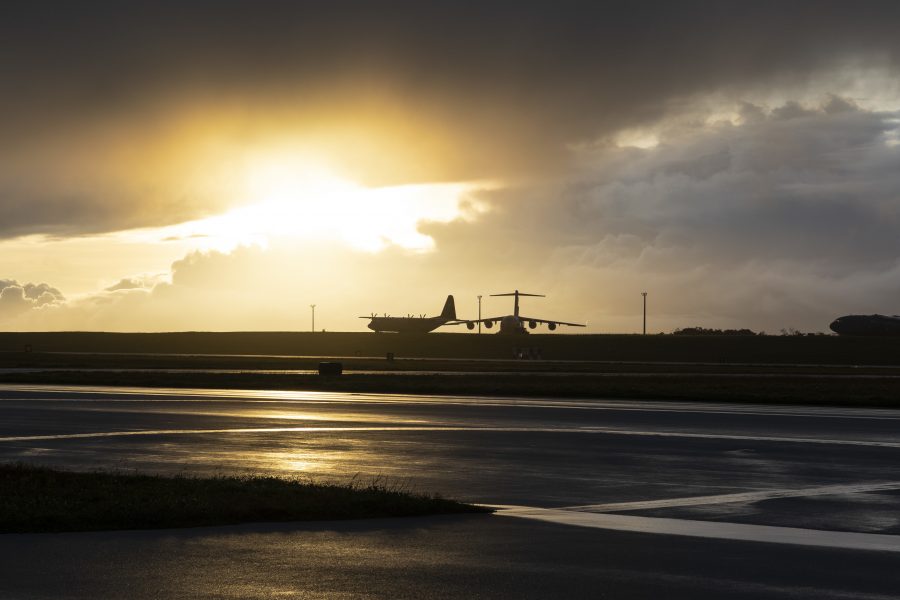Pacific Air Forces is pushing back against a Chinese military propaganda video depicting an H-6K bomber targeting Andersen Air Force Base, Guam, calling it attempted intimidation in the region.
The video, released Sept. 19, shows the bombers flying alongside fighter aircraft, and firing a missile at a Google Maps-style picture of Andersen’s flight line.
“It is yet another example of their use of propaganda in an attempt to coerce and intimidate the region,” PACAF said in a Sept. 23 statement. “Maintaining the safety of our personnel and resources, as well as our allies and partners, is of the utmost importance and we remain committed to ensuring a free and open Indo-Pacific for all nations.”
The video shows targeting crosshairs aiming at an empty portion of the apron on the south side of Andersen’s flight line, where refueling tankers are typically seen at the base. In addition to the image of Andersen, the Chinese video uses footage from the American action movies “The Hurt Locker,” “The Rock,” and “Transformers” to dramatically show explosions.
Andersen was the home of the Air Force’s continuous bomber presence mission, which the service ended in April in a shift to dynamic force employment. Now, smaller bomber task forces are sent to the region for shorter, more unpredictable deployments. A task force of B-1s from the 34th Bomb Squadron at Ellsworth Air Force Base, S.D., is currently deployed to the base.
The video comes as China is expanding its military presence in the Pacific, including building up airstrips on contested islands in the South China Sea to extend the reach of the People’s Liberation Army Air Force. The Pentagon, in its annual report on China’s military power, says the PLAAF is increasing the precision and numbers of air-based cruise missiles, similar to what is portrayed in the propaganda video.
The H-6 bombers have been modernized, with aerial refueling capability and a larger munitions capacity. The PLAAF and the People’s Liberation Army Navy have the third-largest aviation force in the world, and the largest in the Indo-Pacific region, the report states.


